By Antonia Egli and Theo Lynn (Dublin City University)
On April 17 and 18, the Irish Institute of Digital Business (IIDB) at Dublin City University (DCU) welcomed international researchers from the MARGISTAR COST Action to the project’s second annual General Assembly in Dublin. Prof Theo Lynn, Prof Colm O’Gorman, and Antonia Egli represent Ireland within the MARGISTAR consortium and lead the Action’s Science Communications team. Over two days, consortium members focused on strategies to further progress MARGISTAR during the second grant period and met with stakeholders in Ireland to understand how different communities were seeking to address issues through rural town regeneration, digitisation, re-afforestation, or diversifying agriculture.
On April 17, 2024, MARGISTAR’s second General Assembly kicked off at Dublin City University Business School with a Management Committee meeting that showcased the progress and managerial decisions made since the project’s first General Assembly in Finland in 2023. As well as adjustments to the Consortium’s structure, the Consortium’s three Working Groups (WGs) gave overviews of their work to date, which largely focused on stakeholder engagement, the generation of country-specific case studies, and input into policymaking over the past year. In particular, we heard from WG3’s Antonio Monteiro (Portugal) on plans for our first Training School in Portugal this June.
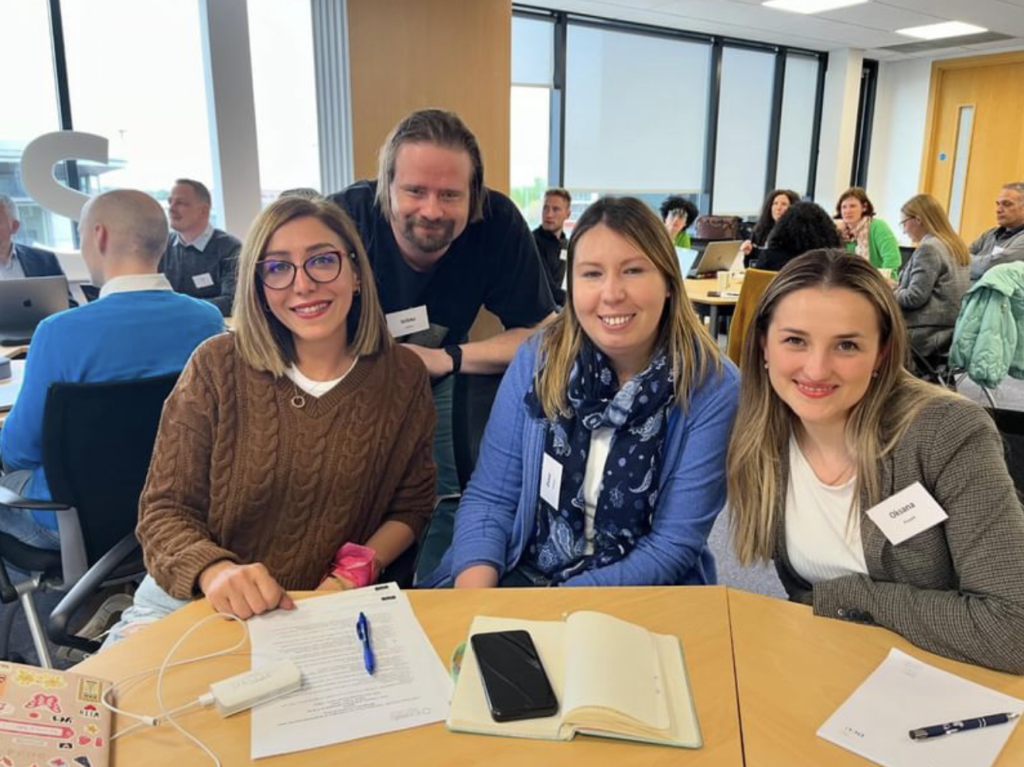
The MARGISTAR FAIRWAY in Europe platform, which was launched within the Consortium earlier this year, was also discussed. FAIRWAY in Europe functions as an online platform aimed at advancing MARGISTAR’s efforts in marginalised mountain regions by facilitating connections between MARGISTAR members and stakeholders in the field. Detailed within our Memorandum of Understanding (MOU), FAIRWAY in Europe will be actively employed over the next three years to bring together mountain stakeholders from civil society, science, and policy sectors. The platform’s key objective is to foster online discussions that bolster marginalised mountain regions and promote sustainable development initiatives extending beyond the scope of the MARGISTAR project. As of now, the platform is open only to MARGISTAR members, but will soon be made available to the public. As part of Day 1, we worked to identify ways to activate participation on the platform. This will form part of the WG1 activity plan over the coming weeks and months. Keep an eye on MARGISTAR’s online channels for more on where and when to sign up.
Simo Sarkki (University of Oulu, Finland) then facilitated a workshop to progress some of the collaborative work being done as part of WG2. This included more policy-focussed brainstorming with teams looking, as well as a discussion of the work-in-progress paper being written based on 20+ case studies on periphery traps in locations represented within the MARGISTAR Consortium.
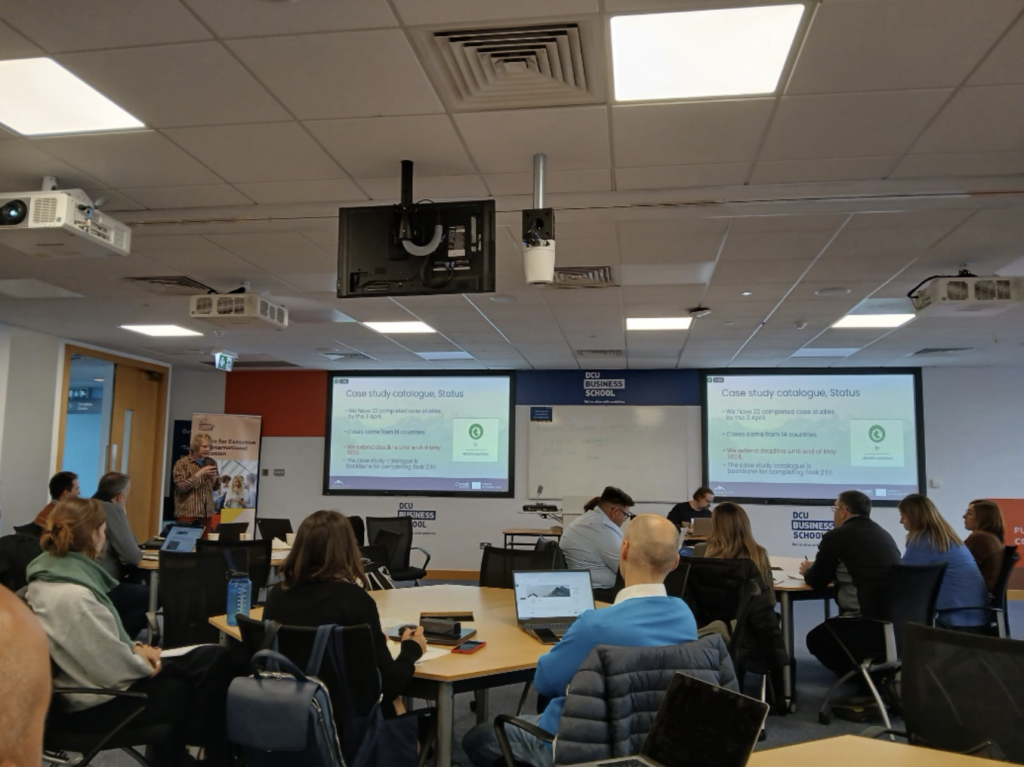
Day 1 ended with a meal in DCU’s 1838 Club in the Albert College. While DCU is one of Ireland’s youngest universities, it is situated on the site of the Glasnevin Institution for Agricultural Teaching, which was established in 1838. After a visit from England’s Prince Albert in 1853, it was renamed Albert College and became a national centre of excellence for agricultural training. Our meal was held in the 1838 Club in a room that was formerly the students’ dormitory.
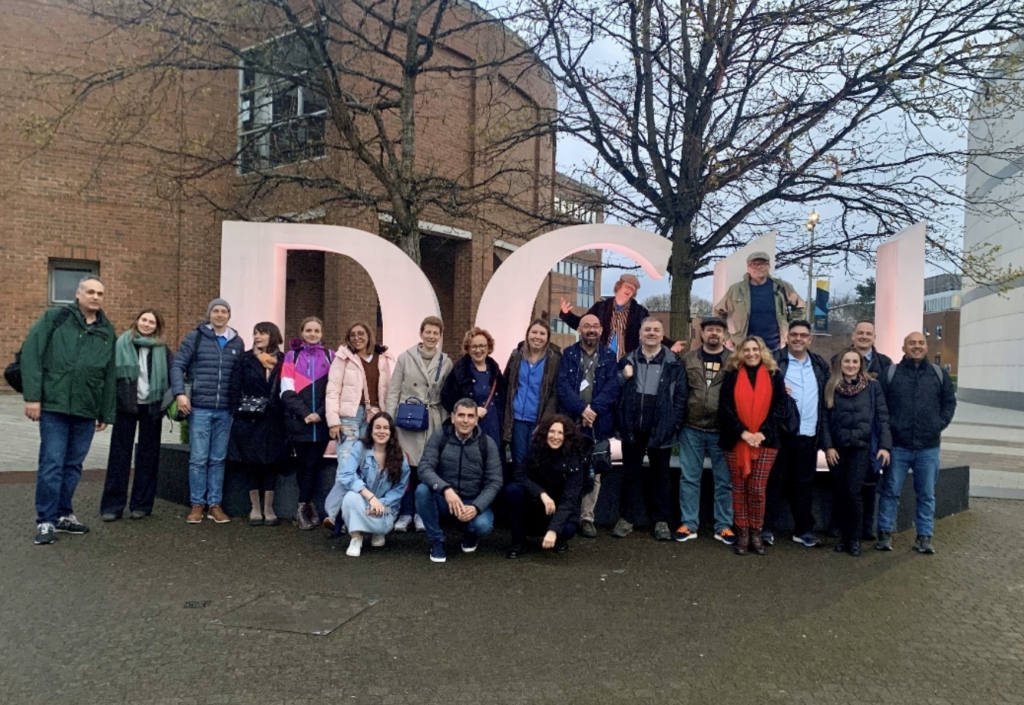
MARGISTAR’s second day in Ireland was spent on the road meeting and learning from stakeholders active in rural Ireland. The day’s first stop was at Teagasc, the Irish national body for research, advisory, and training services for the agriculture and food industry and rural communities. This first meeting, held at at Oak Park in Co. Carlow, comprised of talks with specialists in forest management research and knowledge sharing with advisors to the approximately 24,000 forest owners across Ireland (of which about 80% are farmers). Our host, Tom Houlihan, the Acting Head of the Teagasc Forestry Development Department coordinated the visit, where we learned from Dheeraj Rathore about their research efforts to save Irish ash, strengthen Ireland’s forestry gene bank, and to educate and encourage Irish farmers to diversify and adopt agro-forestry. Part of the meetings were held in the forest where Teagasc trainers demonstrated how they used marteloscopes – 1-hectare large, rectangular forest sites in which all trees are numbered, mapped, and recorded – and digital tablets for virtual tree selection exercises as well as show cases for field visits with prospective foresters. It was great to see active knowledge sharing between the Teagasc team and forestry specialists from Bosnia and Herzegovina, Serbia, Slovenia, and Türkiye, amongst others. We also heard from Barry Caslin, an Energy and Rural Development Specialist, who is actively working with farmers and foresters to develop new businesses and innovation in Irish farms. Again, there was knowledge sharing between MARGISTAR members and Teagasc and a lot of shared insight on how to overcome intransigence, resistance to change, and fear of failure.
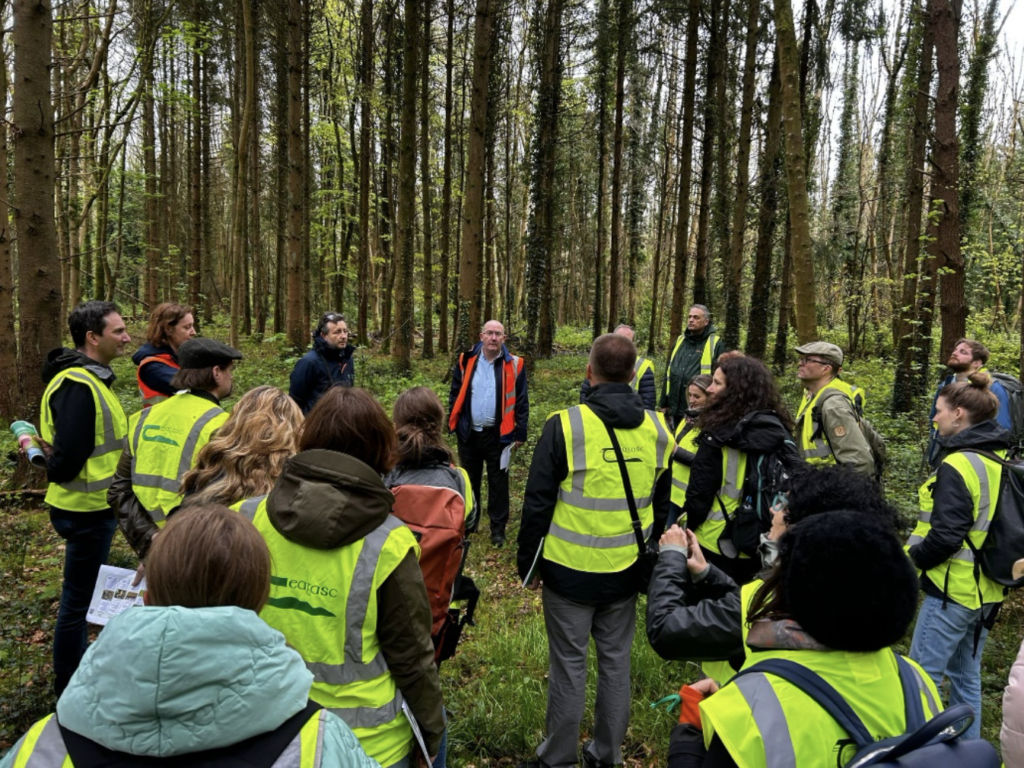
MARGISTAR then continued to the New Ross Municipal District in Co. Wexford, where the group was welcomed by the Chair of New Ross Municipal District, Anthony Connick, Alan Fitzhenry, the New Ross District Manager, and Minister for State at the Department of Justice, James Brown. The meeting was held at the Town Hall, traditionally known as The Tholsel, which dates back to 1749. As well as the MARGISTAR visitors, this meeting was attended by members of the New Ross Town Regeneration team as well as guest speakers.
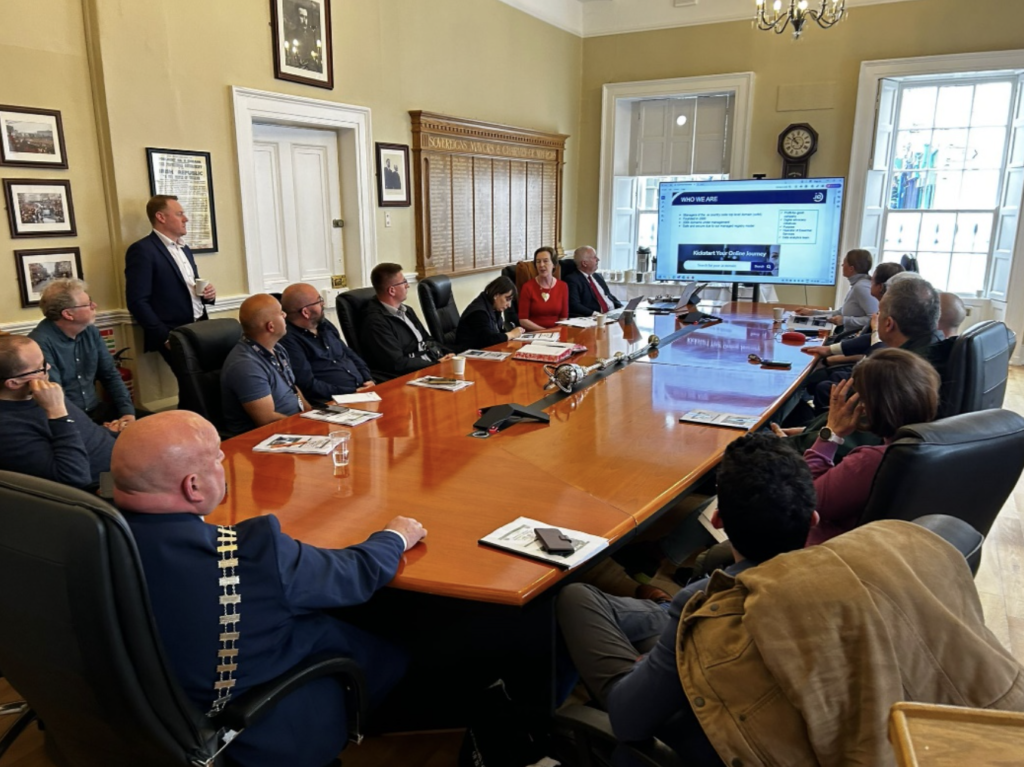
Firstly, we heard from Mick McCormack, the New Ross Town Regeneration Officer who presented Town Centre First and explained how New Ross formed a Town Team to develop their town regeneration plan using a bottom up approach. Then, Oonagh McCutcheon from .IE, the Irish national domain register, presented on grass roots rural digital initiatives and how they recognise these initiatives each year through the Digital Town awards. Brian Doyle from Broadband 4 Our Community gave an inspirational presentation on how his rural community, comprising two small villages in Co. Kilkenny, Piltown and Fiddown, installed their own fibreoptic network and community broadband company to supply ultra-fast broadband to their rural community. As well as connectivity, it retrained local members of the community and today provided direct and indirect employment. After hearing from our guest speakers, Eamon Hore, the Deputy Chief Executive of Wexford County Council, made the New Town Regeneration Plan very real by personally bringing the MARGISTAR group around the town to explain their plans and the potential impact before finishing with a visit to the Dunbrody Famine Ship and offering light refreshments. The Dunbrody Famine Ship Experience is a community tourism initiative that is now one of the largest tourism experiences in the southeast of Ireland and represents another example of how a community can solve their own problems with support from local authorities, government, and other stakeholders.
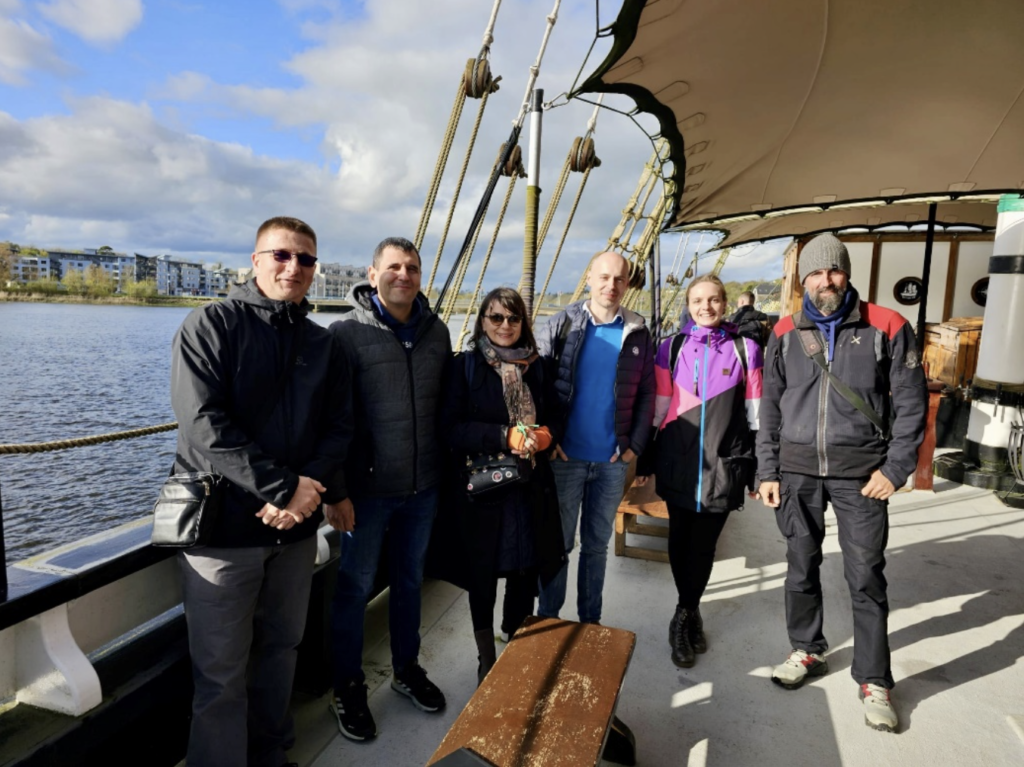
Overall, the MARGISTAR Consortium had a productive two days in Ireland. Meeting stakeholders involved in some of the digital innovation and rural regeneration projects in Ireland gave MARGISTAR members insight into the transformative actions taking place at local levels and helped to inform the developing MARGISTAR approach to improving marginalised mountainous areas. It certainly stimulated additional ideas and discussion throughout the meeting in Ireland. Hopefully, we recruited a couple of new members too!
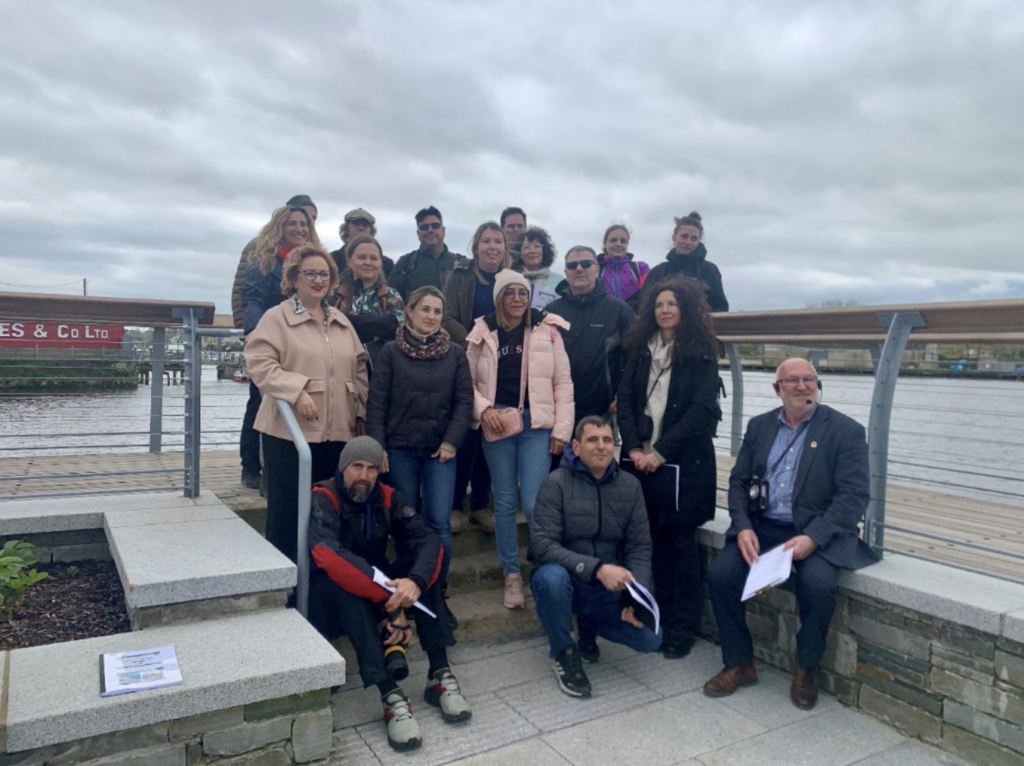
For more updates on all things MARGISTAR, be sure to sign up to the Action’s regular newsletter. Starting May 2024, the MARGISTAR Consortium will also meet for the bi-monthly MARGISTAR Summit Series, a selection of webinars hosted by our very own members to disseminate research, share experiences, and explore challenges and opportunities in mountainous areas. As they say in Ireland: Go Raibh Maith Agat!


